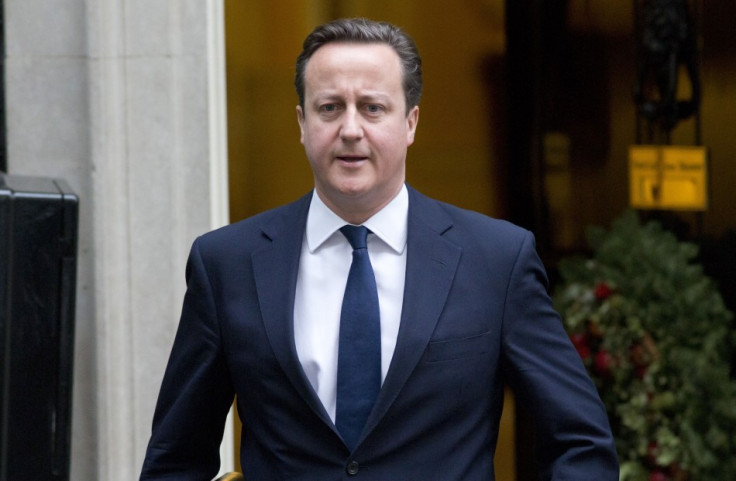The Prime Minister is Wrong - Website Boycotts Won't Work, Education Needs to Change
David Cameron has asked for us to boycott websites which don't do enough to stop their users from being bullied, in a move as helpful as suggesting we avoid walking on streets with a high crime rate, says technology reporter Alistair Charlton.

The PM's comments come after 14-year-old Hannah Smith took her own life after she was subject to cyber-bullying on Ask.fm, a social network where users can anonymously ask each other questions.
Here is Cameron reponse to the tragedy:
"The people that operate these websites have got to step up to the plate and show some responsibility in the way that they run these websites. Second point is, just because someone does something online, it doesn't mean they're above the law. If you incite someone to do harm, if you incite violence, that is breaking the law, whether that is online or offline. Also there's something all of us can do as parents and as users of the internet and that is not to use some of these vile sites. Boycott them, don't go there, don't join them - we need to do that as well."
Although he may mean well, and of course the topic must be addressed in some way, Cameron has failed to say anything authoritative or convincing. Ask.fm isn't intentionally a "vile" website as he is suggesting, but some of its users, as with any website where free comment is allowed, are.
Ask.fm said its moderators "ensure genuine concerns are acted upon immediately" and that it always removed "content reported to us that violates our terms of service".
Us and Them
The PM seems to think there is a distinct 'us' and 'them', with us being the right-minded general public going about our business and browsing the internet, and them being lonely, reclusive trolls with their vile websites full of child porography, waiting to jump out at us. But alarmingly 'they' operate on both sides and the truth is that these websites already have an audience who have no interest in boycotting them.
Writing in the Telegraph earlier this week, Mic Wright wrote about an entire community of Twitter users and bloggers he discovered who brand themselves as the OSC, or Online Sex-Offender Community, where paedophiles are defended and distorted views of children are made.
Cameron's proposed web filter simply won't work here, because the OSC and others can request their internet service provider to not filter out anything, and continue as before.
These people aren't going to boycott what Cameron calls "vile" websites because they use them productively in the same way you and I might use a forum, and telling functional members of society to boycott them is like asking us all to boycott machine guns and landmines.
Thanks Dave, could have got myself in trouble if you weren't here to help.
Solution
The solution isn't to take away the tools used to cause harm online because an infinite number of replacements can be made in the same way Twitter trolls create new accounts when they are (eventually) suspended.
Blaming the service is like blaming car manufacturers for all road deaths, which is short-sighted and won't solve anything. The problem here goes much deeper and so must the solution.
Our society is evolving at an astonishing rate as technology changes our lives, and while for years the only downside has been parents frustrating their children with their inability to send an email, we're now seeing real problems develop where society is ill-equipped to deal with anonymous online communication.
No child has yet been taught from the day it was born how to behave online and how to communicate through screens and keyboards, yet smartphones and tablets are being thrust into their outreached hands at younger and younger ages.
Rethink policy
Addressing concerns that children are not educated enough to deal with online communication, Diane Abbott MP said this week that the government has to rethink policy and give greater importance to teaching children about relationships online.
"I think the main failing of the government in this issue is [education secretary] Michael Gove's refusal to make sex and relationship education compulsory in all schools. This would mean that children would not only learn about how to cope with sexting and pornography but they would also discuss how to relate to each other on the internet."
I can't help but think we've taken a wrong turn somewhere and in our insatiable desire to innovate we have failed to adjust education to keep up with the change.
Sadly I don't have a solution, and I fear we never really will unless you want North Korean levels of censorship, but to me this and the recent trolling problems on Twitter have been building below the surface for some time, and now it's all out in the open we're only just starting to understand the monster we've created.
© Copyright IBTimes 2024. All rights reserved.






